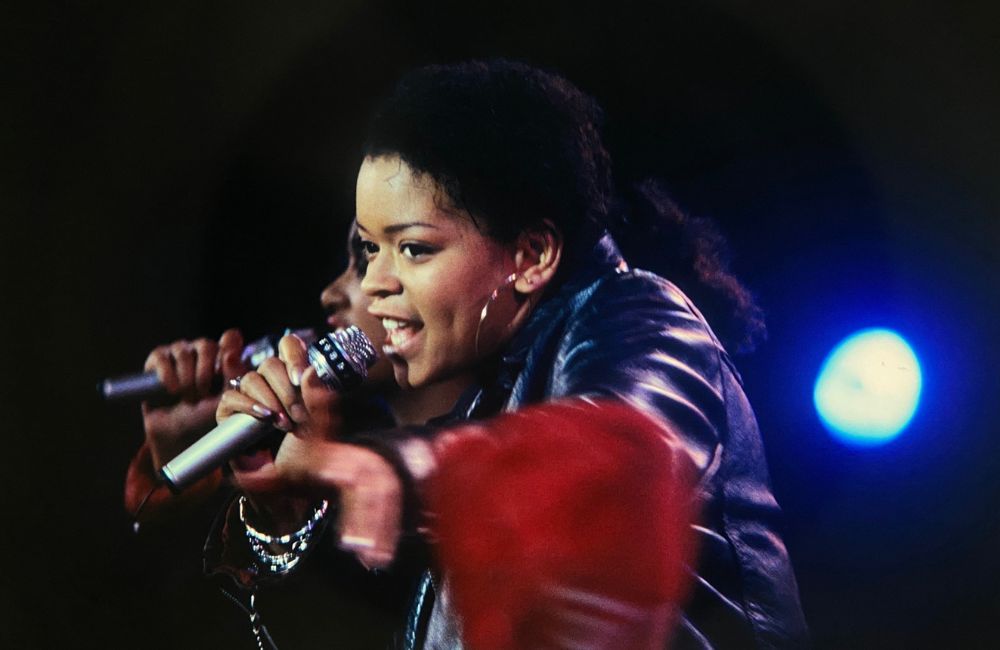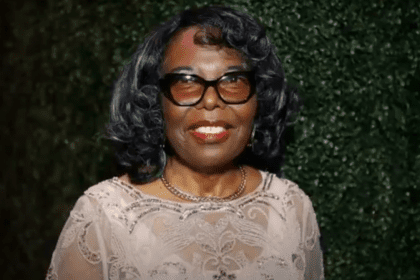Hip-hop icon Samantha Lawrence has died aged 55.
The singer – famed for being part of duo Wee Papa Girl Rappers with her sister Sandra – was hit by her second cancer diagnosis earlier this year, and her family confirmed on Thursday (05.12.24) she passed away at home. The news sent shockwaves through the British music community, where Lawrence had been a respected figure for over three decades.
“It is with great sadness that we announce that beloved sister and mother Samantha Lawrence passed away on Sunday,” a statement from the performer’s loved ones said. “Samantha, aka TY Tim, was known for her chart success with Wee Papa Girl Rappers, a hip-hop pop duo that she founded with her older sister Sandra Lawrence, aka Total S.” The duo was among the first female rap acts to achieve mainstream success in the UK.
Wee Papa Girl Rappers’ hit song ‘Wee Rule‘ reached number six in the UK singles chart in 1988 and was a smash hit across Europe. The track spent 12 weeks in the charts and helped establish British hip-hop as a viable commercial force in the European music scene.
Tributes have been pouring in for Samantha since news of her death broke, including from DJ Dave Pearce who worked with the duo. His heartfelt remembrance highlighted the groundbreaking nature of their work in a male-dominated industry.
“Sam was part of a defining and groundbreaking era of trailblazing British female rappers who against the odds conquered the UK charts alongside the likes of Cookie Crew,” he said. “It was a really exciting time for me and always a pleasure to work with them on my ‘Radio London’ hip-hop show back in the day, their positive energy was infectious.”
“Always keen to experiment, they fused dancehall with reggae with Wee Rule and stepped into the house arena courtesy of Kevin Saunderson’s remix of ‘Heat it Up’,” Pearce continued, highlighting the duo’s versatility and innovation in mixing various musical styles.
“Through her success, Sam will have inspired others to follow their dreams. I’m glad I had the chance to remind her of that recently,” he added. “Thoughts with her sister Sandra and daughter KeeKee. Rest In Peace.” Lawrence’s influence on subsequent generations of British female artists has been widely acknowledged in the industry.
Samantha and Sandra were born in Hammersmith, west London, and brought up in South Ealing and Acton. Their local roots remained an important part of their identity throughout their career, inspiring many young artists from similar backgrounds.
They released two albums and split up in 1991 before reuniting for further work. Their discography includes the acclaimed albums “The Beat, the Rhyme, the Noise” (1988) and “Be Aware” (1990), both of which showcased their unique blend of hip-hop, reggae, and dance music.
During their active years, the Wee Papa Girl Rappers performed at numerous prestigious venues and festivals across Europe, helping to establish British hip-hop’s international credibility. Their success paved the way for future generations of UK rap artists, particularly women in the genre.
The duo’s impact on British music extended beyond their chart success. They were among the first British female rap acts to appear on Top of the Pops, breaking down barriers for women in hip-hop. Their style of mixing rap with popular music elements helped create a distinctive British hip-hop sound that influenced the development of grime and UK rap in the following decades.
Lawrence’s battle with cancer had been private, but she continued to inspire others through her music and occasional public appearances. Her contribution to British music has been recognized by various industry bodies, and her influence continues to be felt in the current generation of British female rappers.
Her passing leaves a significant void in the British music scene, but her legacy as a pioneer of UK hip-hop and an inspiration to female artists remains intact. Samantha Lawrence’s journey from West London to chart success helped establish a path for countless others to follow, making her an integral figure in the history of British popular music.
















